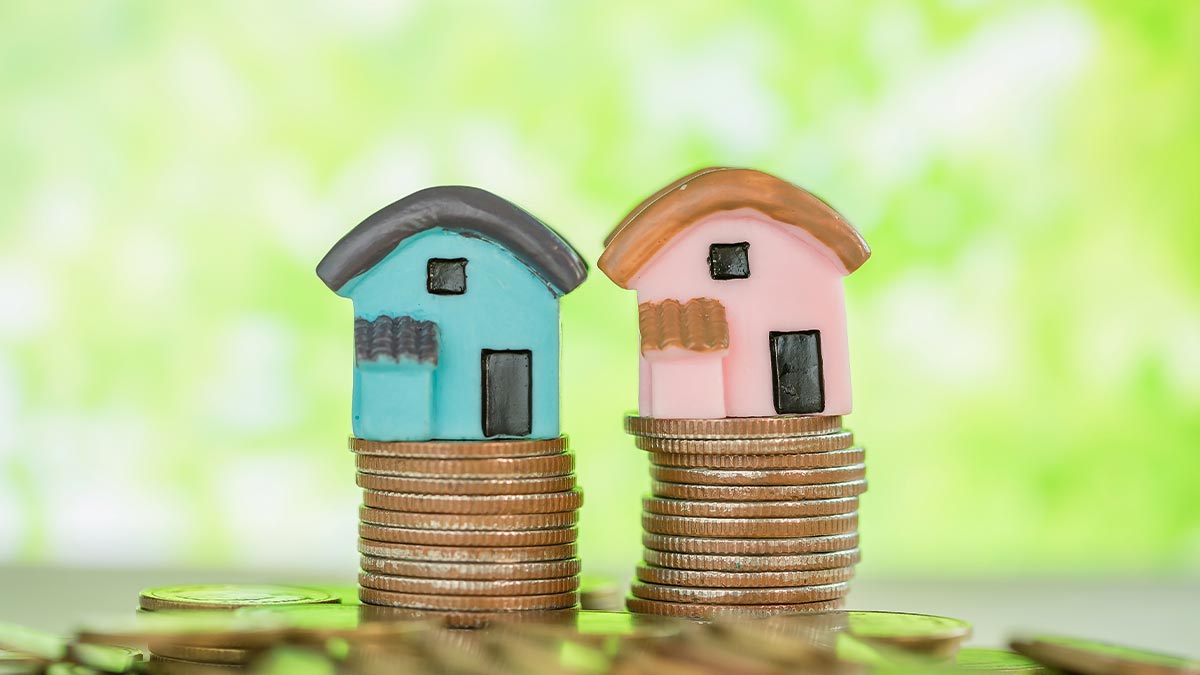Expatriates who live in the UAE need to determine whether they will purchase property or generate rental revenue. Long-term financial appreciation combined with stability comes from property ownership at the cost of requiring large initial capital investment and long-term dedication. Rental investments enable flexibility as well as passive income with reduced initial costs but they do not build equity. The best investment varies according to your monetary circumstances and the duration of your stay in the UAE and your investment targets. Consulting with a financial advisor in Dubai can help align your real estate investment strategy with your broader wealth management plan.
Introduction
Real estate serves as the most substantial and possibly most profitable investment option for people from abroad who reside in the UAE specifically in Dubai. The fundamental dilemma arises regarding whether property owners should invest in buying real estate or focus on property rental income generation. Deciding between property ownership and renting options has substantial effects on your financial trajectory as well as your wealth management plan.
As a leading wealth management company in Dubai, Wimbledon Wealth Management offers insights into this critical investment dilemma facing expatriates. The article explores benefits alongside difficulties that exist within these investment methods in order to help you decide what suits your financial aspirations best.
Property Ownership: Building Long-Term Wealth
Advantages of Property Ownership
Capital Appreciation
Dubai’s real estate market shows excellent resistance together with steady expansion potential throughout recent years. Prime real estate locations in the UAE have shown long-term value appreciation that generates substantial investment returns. The real estate market appreciation in the UAE assists expats who stay long-term to build substantial wealth.
Building Equity
Property purchases enable homeowners to build tangible asset equity through the payments they make toward their mortgages. Mortgage payments help you gain equity ownership in your house by building net worth through the act of owning real property. This equity can later be leveraged for additional investments or retirement funding.
Rental Income Potential
Property ownership enables owners to create rental profits if they want to change their current situation. Through property ownership you can turn your home into an investment property after moving either within the UAE or abroad which gives you financial freedom that other investment options do not provide.
Challenges of Property Ownership
Significant Upfront Investment
Property ownership in the United Arab Emirates necessitates large initial financial commitments. Down payment expenses amounting to 20-25% of property value and registration fees at 4% couple with agent costs are typical for residential investments in UAE properties. The substantial capital requirements may prevent you from pursuing other wealth management opportunities within your portfolio.
Long-Term Commitment
Buying property is a large long term financial commitment which may not suit the uncertain tenure that many expats face in the UAE. If you need to sell quickly due to relocation, market conditions might not be favorable, potentially resulting in losses or delayed plans.
Maintenance Responsibilities
The full responsibility for maintenance costs, service charges, repairs, etc. rests upon the property owners. To estimate the real total cost of ownership, you have to consider these ongoing expenses in your financial planning.
Rental Income: Flexibility with Passive Returns
Advantages of Rental Income Investments
Lower Initial Capital Requirements
Investing in rental properties often allows for more diversified investment strategies with lower initial capital requirements compared to purchasing a primary residence. This approach enables investors to spread risk across multiple smaller properties or different investment classes altogether.
Portfolio Diversification
Rental income investments can form part of a diversified wealth management strategy. Working with a financial advisor in Dubai can help you balance real estate investments with other asset classes to optimize returns while managing risk levels appropriately.
Flexibility and Liquidity
Rental income investments typically offer greater flexibility than primary residence purchases. Investors can adjust their strategy based on market conditions, selling properties when advantageous without the personal disruption of relocating your family.
Challenges of Rental Income Investments
Management Overhead
Rental properties require ongoing management, whether handled personally or through a property management company. This responsibility includes finding tenants, maintaining the property, and addressing issues promptly—all factors that impact your return on investment.
Market Fluctuations
Rental yields in the UAE can fluctuate based on market conditions, potentially affecting your anticipated investment returns. Periods of oversupply in certain areas can lead to reduced rental rates and longer vacancy periods.
No Equity Building
Unlike primary residence ownership, pure rental income investments do not contribute to building personal equity in a home. All housing expenses remain ongoing costs rather than contributing to asset accumulation.
Making the Right Decision for Your Financial Future
Consider Your Time Horizon
Your anticipated length of stay in the UAE should significantly influence your decision. For long-term residents (5+ years), property ownership may prove more economically advantageous. For those with uncertain timeframes, rental income investments offer more flexibility.
Evaluate Your Financial Goals
Your broader financial planning in Dubai objectives should guide your real estate investment strategy. Are you primarily focused on capital growth, current income, or a balance between the two? A comprehensive financial plan developed with a wealth management professional in Dubai can help align your property investments with your overall financial goals.
Assess Market Conditions
Current market conditions in the UAE real estate sector should factor into your timing decisions. Working with financial advisors who understand the local market can provide valuable insights into optimal investment timing and location selection.
The Role of Professional Wealth Management
Making informed decisions about property investments requires considering how real estate fits within your comprehensive financial plan. Professional wealth management services in the UAE can provide crucial guidance on:
- Balancing real estate investments with other asset classes
- Tax implications for your home country
- Integrating property investments with retirement planning in UAE
- Analyzing potential returns against alternative investment options
- Structuring financing to optimize tax efficiency and returns
Conclusion
Both property ownership and rental income investments offer distinct advantages for expats in the UAE. The optimal strategy depends on your personal financial situation, time horizon, and long-term objectives. Property ownership provides stability and potential appreciation but requires significant commitment. Rental income investments offer flexibility and diversification but may not build equity in the same way.
For expats navigating these complex decisions, working with experienced financial planning in Dubai professionals can provide valuable guidance tailored to your unique circumstances. Wimbledon Wealth Management Dubai’s advisors can help you evaluate real estate investment options within the context of your comprehensive wealth management strategy, ensuring alignment with your long-term financial goals.
FAQs
1. How long should I plan to stay in the UAE to make property ownership worthwhile?
Generally, a timeframe of 5+ years makes property ownership more financially advantageous due to the amortization of purchase costs and potential for capital appreciation.
2. What are the typical rental yields for investment properties in Dubai?
Rental yields in Dubai typically range from 5-8% depending on the property type and location, with apartments often delivering higher yields than villas.
3. Can expats get mortgages in the UAE?
Yes, many UAE banks offer mortgage products specifically designed for expatriates, typically requiring a minimum down payment of 20-25% for first-time buyers.
4. How do property investments in the UAE compare to other wealth management strategies?
Property investments offer tangible assets with potential for both capital appreciation and income generation, but typically have lower liquidity than financial market investments. A balanced wealth management approach often includes both asset classes.
5. What are the tax implications for expats investing in UAE property?
While the UAE doesn’t impose income or capital gains taxes, expats should consult with financial advisors regarding potential tax obligations in their home countries, as these vary significantly based on nationality and residency status.

